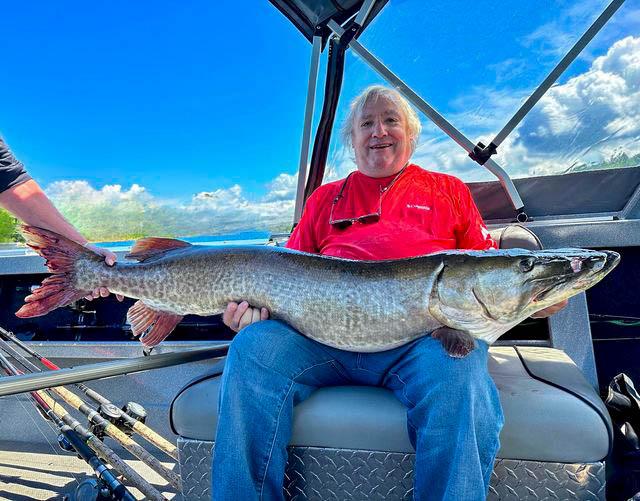MANITOULIN—The 4Directions Complex in Aundeck Omni Kaning was once again the site of the gala awards ceremony for the Weengushk International Film Festival, Canada’s premier Indigenous Film festival, that attracts the very best work of Indigenous filmmakers in feature films, documentaries and short films. This year was no exception, although due to the number of films being shown this season, the event was juried.
This year’s festival’s opening ceremonies included a screening of ‘Sugarcane,’ a 2024 documentary film directed by Julian Brave NoiseCat and Emily Kassie (produced by Emily Kassie and Kellen Quinn). The documentary film follows an investigation into the Canadian Indian residential school system, igniting a reckoning in the lives of survivors and descendants while highlighting their continued resilience and forgiveness. Ms. Kassie was on hand for a question and answer session following the screening.
‘Sugarcane’ was an emotional experience for many viewers and the tissues that held the audiences’ tears were gathered and consumed in a sacred fire following the screening. The ashes were then gathered and placed in red cloth bundles and distributed to the residential school warriors who took part in the Blanket of Stars ceremony that preceded the festival to take home and place in their own fires as a cathartic personal ceremony.
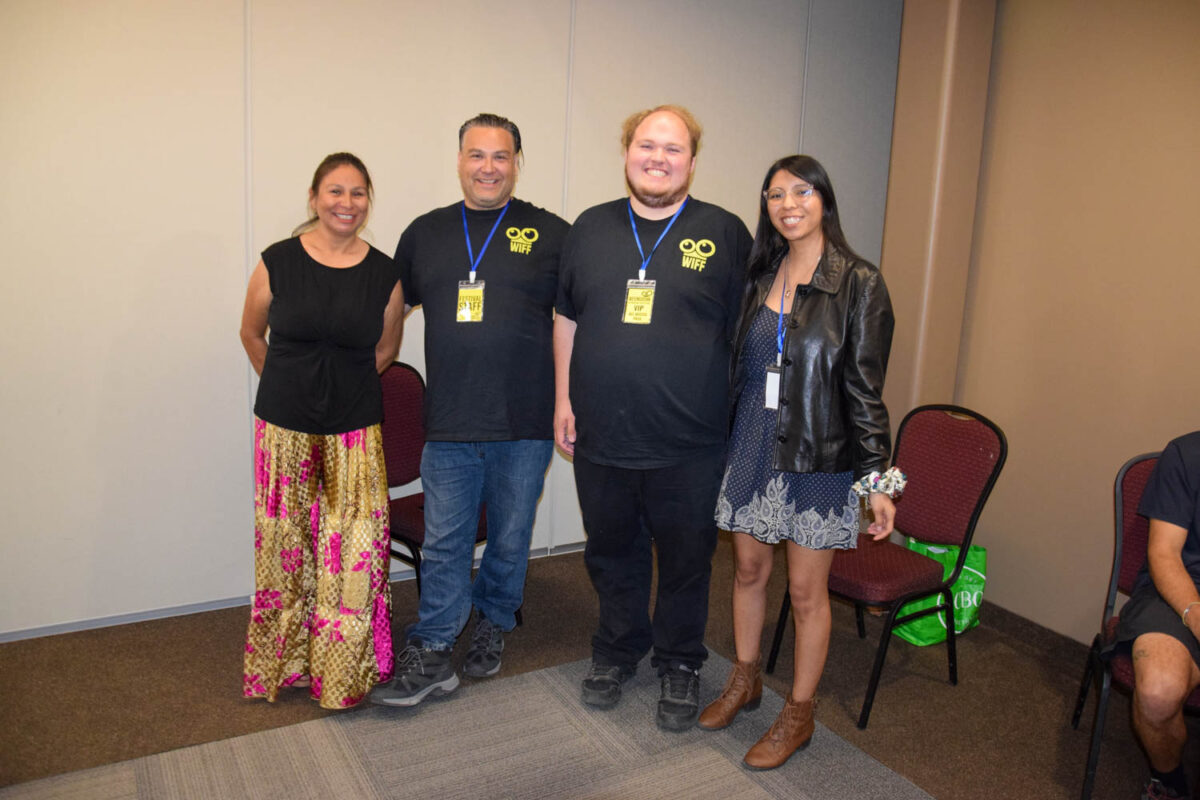
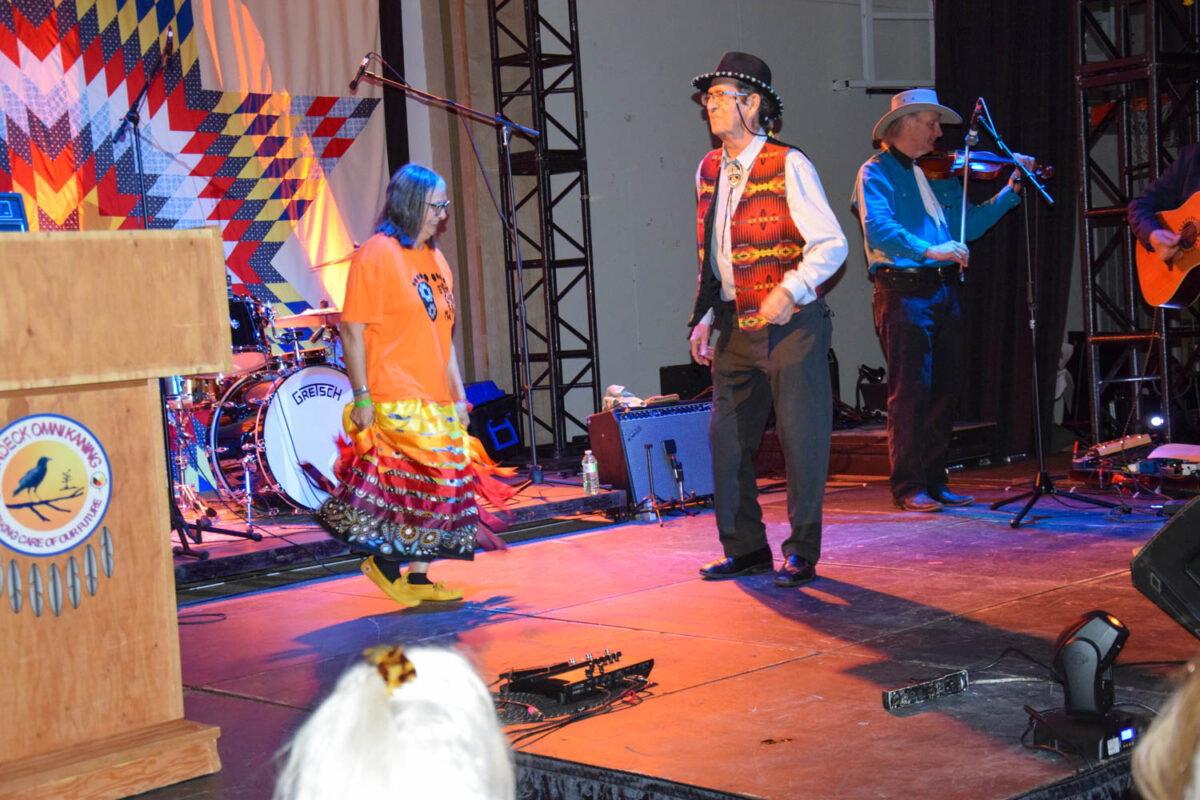
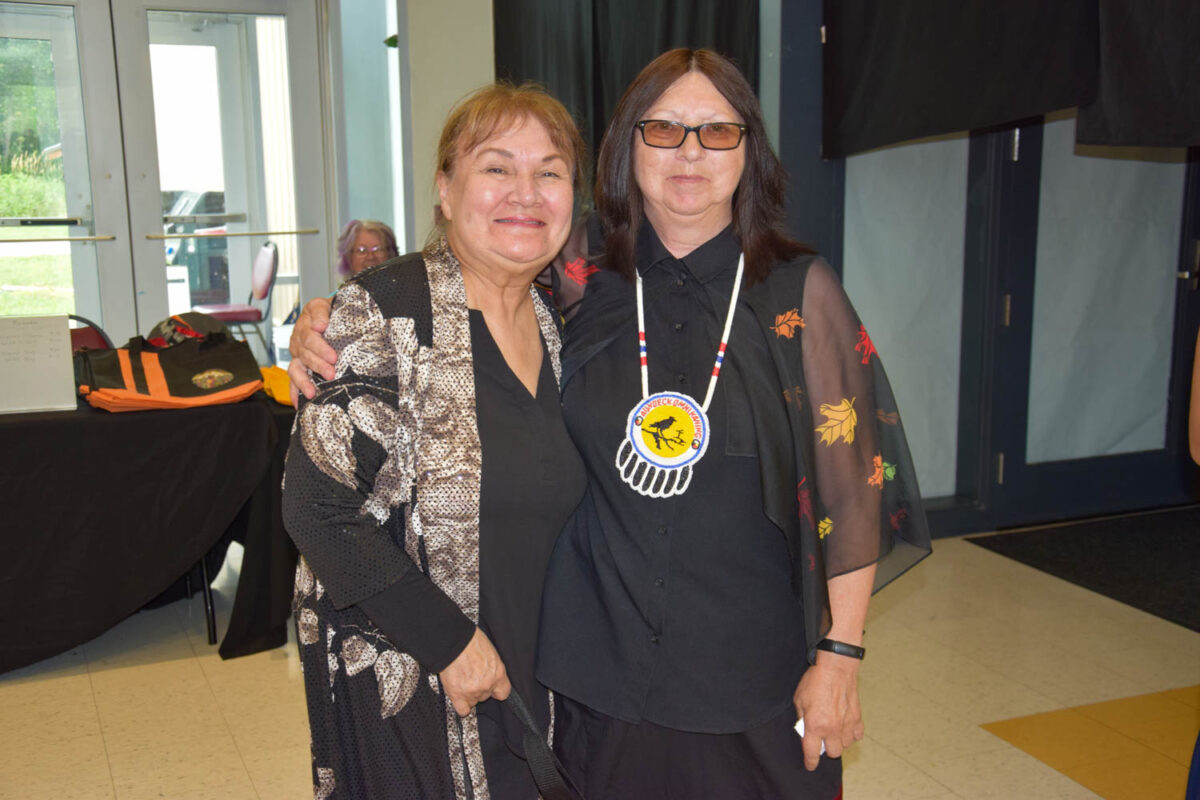
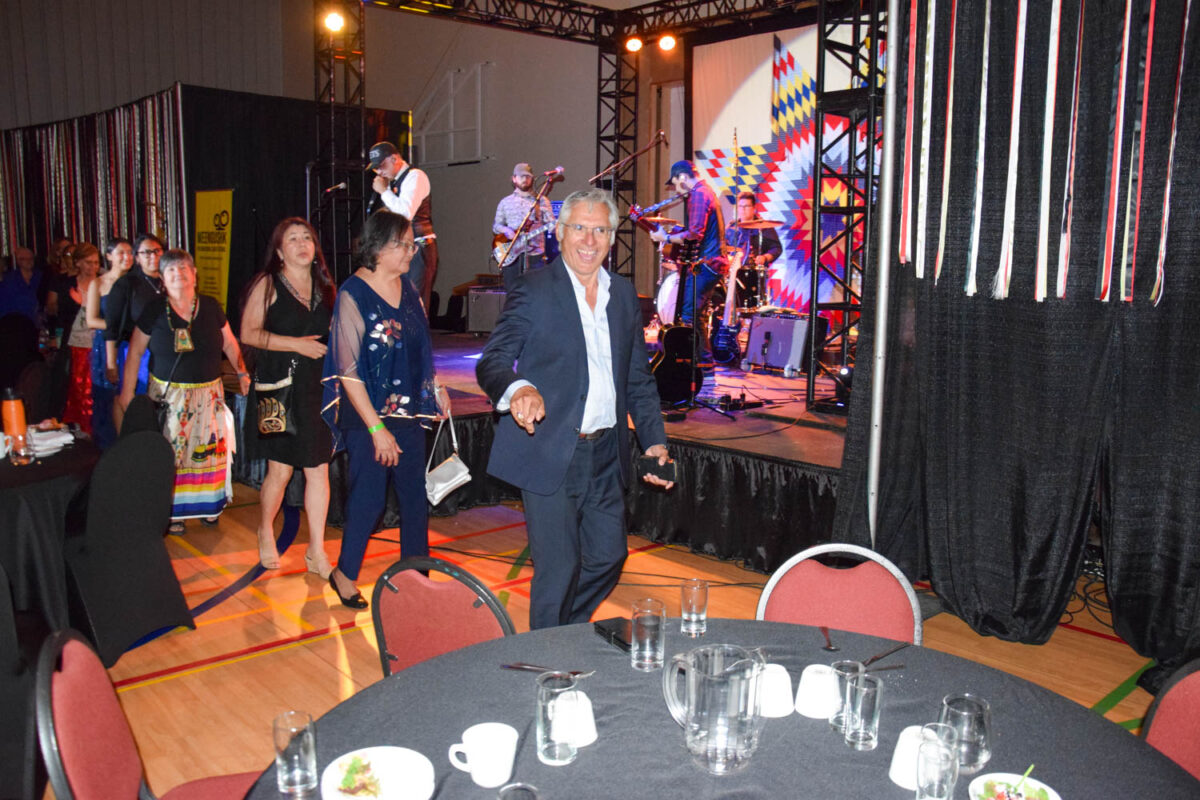
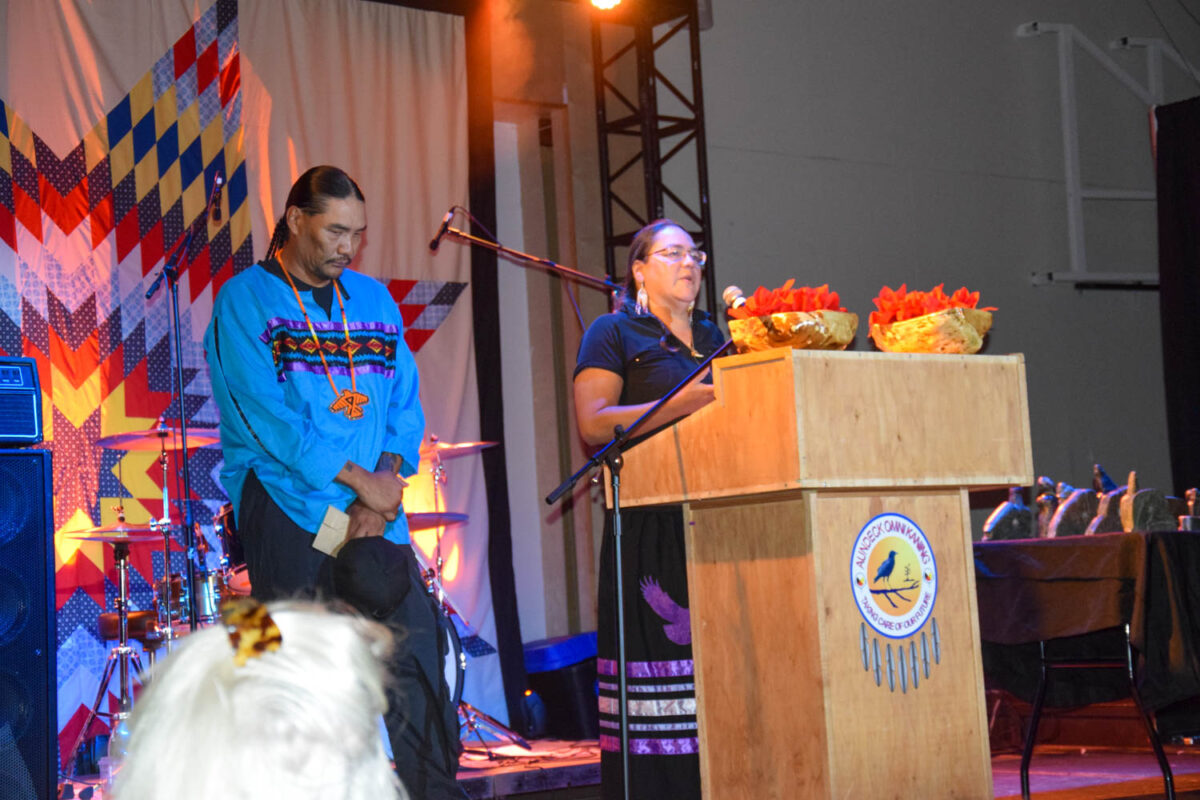
photos by Michael Erskine
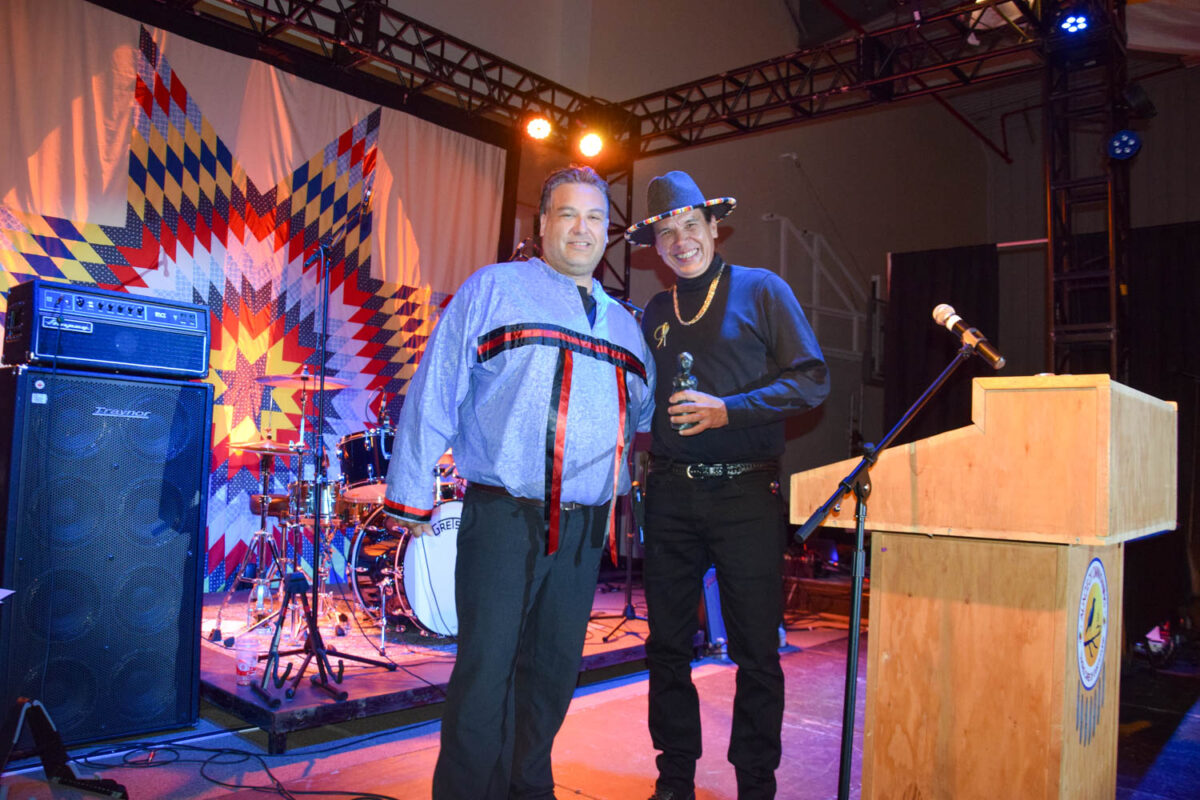
Indigenous musician Aysanabee, the first Indigenous songwriter to win the prestigious JUNO for Songwriter of the Year and 2024 winner of the JUNO for Alternative Album of the Year entertained following the opening ceremonies.
Films featured at WIFF 2024 included the mockumentary comedy ‘Hey Victor!’ by Cody Lightning; the psychological drama ‘Bones of Crows’ by Marie Clements (WIFF Best Screenwriting Award); ‘Twice Colonized’ by Lin Alluna; ‘Lakota Nation vs. United States’ by Jesse Short Bull and Laura Tomaselli (WIFF jury special impact award); ‘Waapake (Tomorrow)’ by Jules Arita Koostachin; Mary Two-Axe Earley: I am Indian Again’ by Courtney Montour; ‘The Alexander Ball’ by Jessica Magro; ‘Butterfly/bataplai by Veialu Aila-Ainsworth; ‘NIGIQTUQ (The South Wind)’ by Lindsay McIntyre; and ‘Tautavuk (What We See)’ by Carol Kunnuk and Lucy Tulugarjuk.
Four films by Weengushk Film Institute students were also screened at the festival as part of the Student Films Showcase on Saturday morning. The short films included outstanding works by budding directors Dexter Bowerman, Paul MacIntyre, Presely Meawasige and Vanessa Ominika.
At the beginning of the WIFF 2024 awards gala, an eagle staff designed and created by Anishinaabe artist Gmewin Migwans, was presented to Weengushk Film Institute by her and knowledge keeper Craig Fox. Ms. Migwans explained the symbolism of the seven eagle feathers that were previously gifted to Weengushk, the shells and sweetgrass that are incorporated in the staff and the colour yellow, which is integral to the Weengushk ‘brand.’
Earlier awards presented to individuals included an Award of Excellence to Indigenous political leader Phil Fontaine, Clearing the Path Award to Justice Harry Laforme, the Yesno Tribute Award to Billy Diamond and a Special Recognition Builders Award to language teacher Barbara Noland. An Icon Award was presented to actor Lorne Cardinal.
The Legendary Award was presented to Cree activist and politician Matthew Coon Come. In his acceptance speech, Mr. Coon Come noted that “You can’t evolve if you don’t start. Change begins with you, your family will change, your community will change, your nation will change. If you use every day to bring positive change in the lives of others, you will begin to live a life that matters. That’s growth. Understand this though, not everything that we face can be changed. Nothing can be changed until we face it. You have heard many say something should be done. When they see you or hear a story, they react emotionally and intellectually, but they go no further. A shift in thinking is required to think ‘I must do something about that.’ You must get involved–to move from, ‘I have to, I want to, I can’t wait to. The world is a dangerous place, not because of those who do evil but because of those who look on and do nothing. Be not overwhelmed when you see evil and injustices around you or think of problem looks too big to tackle, and never say ‘what can I do? I’m just one person,’ one person is a star. When a person can act and make a change by helping another, one person can inspire the second person to act. We should never let what we cannot do keep us from doing. We can do. A passive life does not become a meaningful life. In action. Or in other words, doing nothing cannot fail. They cannot succeed either. You can ‘hope and wish,’ but if you do, you will miss the greatest story you could have had and share. It’s all about the heart. Stop saying ‘I’ll try my best.’ Trying is not enough. Rather say ‘I’ll do it.’ Unleash it–tremendous power. In life it’s not what we get that makes us valuable, it is what we become in the process that brings value to our lives. Action changes lives. If we take action, it will change your life. And that change will begin changing others. When aiding others, you begin to see the world through eyes other than our own that inspire us to do more than belong. We participate, we do more than care. We go beyond being fair. We are kind. We go beyond dreaming. We work. Why? Because we want to make a difference.”
Also receiving an Icon Awards were Blackie and the Rodeo Kings musician Tom Wilson and actor Mark Ruffalo.
The Blake Debassige Emerging Artist Award went to WFI student Malia.
The Youth of Distinction award went to Presely Meawasige.
The Whole Jury Distinction Award went to actress Lily Gladstone.
A special Actor’s Award went to Stitch Manitowabi, for his outstanding performance in the student films.
Following the awards ceremonies, the Tragically Hip tribute band The Poets closed off the evening with a lively and uplifting performance celebrating resilience.


